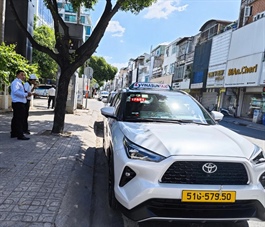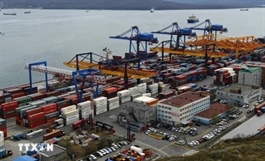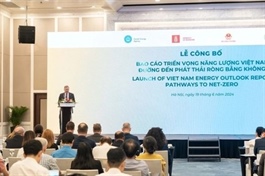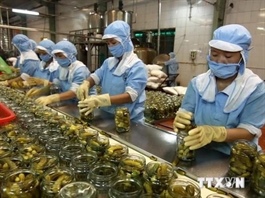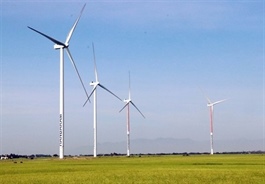Southeast key economic region exports grow strongly
Southeast key economic region exports grow strongly
Exports by provinces and cities in the southeastern key economic region have grown strongly so far this year.
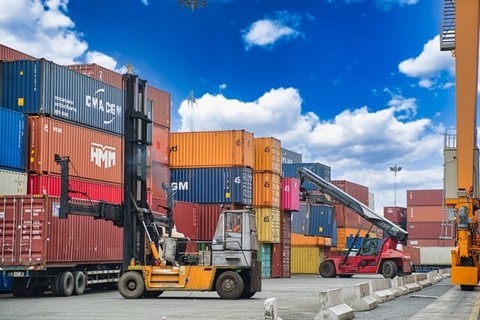
Export container of goods at Bình Dương Province's port. — VNA/VNS Photo |
The region includes HCM City and the five provinces of Đồng Nai, Bình Dương, Bà Rịa - Vũng Tàu, Bình Phước, and Tây Ninh, making it the country’s largest economic hub and a major contributor to economic growth, exports, Government revenue collections, and jobs.
According to the Bình Dương Department of Industry and Trade, in the first five months of the year the province's exports valued nearly US$13.8 billion, up 13.9 per cent year-on-year.
Deputy chairman of the province’s Wood Processing Association, Lưu Phước Lộc, said the wood products sector has always been one of Bình Dương's bright spots in terms of exports.
With its effective business support policies, Việt Nam's wood and wood products exports have achieved great success in the international market, he said.
Businesses are trying to secure more orders by organising fairs and exhibitions at home and abroad and making inroads into new markets in the Middle East, he added.
According to the Đồng Nai Province's Statistics Department, in the first five months of the year, the trade surplus topped $2.8 billion, with local businesses exporting nearly $9.3 billion worth of goods.
Of Đồng Nai's exports, more than 60 per cent are from industries such as electronics, textiles, footwear, and machinery components and equipment.
The province exports to more than 170 countries and territories, but the US, Japan, China, South Korea, and Europe remain the main markets.
According to businesses, the export market shows signs of improvement with more orders coming in.
Đồng Nai expects a trade surplus of $6.8 billion this year.
Nguyễn Ngọc Hòa, chairman of the HCM City Business Association (HUBA), said since the beginning of the year city businesses have had large orders that would take until the end of the third quarter to complete.
Though businesses are still under pressure to reduce prices and face high technical barriers, they are striving not to lose orders, accepting reduced profits and finding ways to reduce costs.
Thanks to this, the city's exports continue to recover after being affected by fluctuations in the world market, with shipments increasing across the board by product and market.
Its Department of Industry and Trade said exports in the first four months of the year were quite high at $12.5 billion, a 69 per cent increase year-on-year.
Textile and garment exports topped $1.2 billion, an increase of 40 per cent, wood and wood product exports rose by more than 80 per cent to $175.6 million, and machinery, equipment, tools, and parts exports reached $912.8 million, an increase of 41 per cent.
The city has created mechanisms and policies to support businesses in converting production models towards increasing the application of modern, environmentally friendly technology and improving the competitiveness of Vietnamese exports.
It has also encouraged businesses to find partners in and expand markets outside of China and the US.
Diversifying export markets will help reduce cyclicality and volatility in exports.






